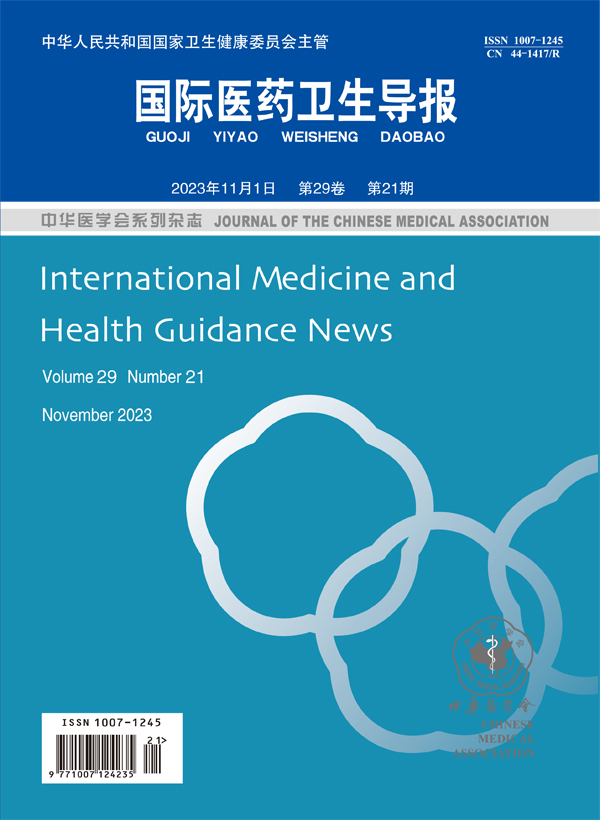Study the significance of serum immunoglobulin test in the diagnosis and treatment of hepatitis B
引用次数: 0
Abstract
Objective To analyze the application value of serum immunoglobulin test in the diagnosis and treatment of hepatitis B. Methods 100 patients with chronic hepatitis B admitted to our hospital from January 2017 to January 2019 were selected as the study group, including 50 cases of mild hepatitis B and 50 cases of severe hepatitis B. And 50 cases of healthy subjects were selected as the control group in the same period. Serum IgG, IgA, and IgM levels were compared among all subjects, and serum total bilirubin (TBIL), prothrombin activity (PTA), and immunoglobulin were compared between the effective and ineffective patients in the study group. Results The serum IgG level of the severe chronic hepatitis B group was (15.72±2.83) g/L, the IgA level was (2.95±0.74) g/L, and the IgM level was (2.93±0.76) g/L, which were significantly higher than those of the mild chronic hepatitis B group (t=5.621 3, 6.781 2, 5.961 7, P<0.05). In the study group, 72 cases were effective and 28 cases were ineffective. The serum IgG level of the effective treatment group was (13.72±2.49) g/L, the IgA level was (2.54±0.43) g/L, and the IgM level was (2.48±0.39) g/L, PTA was (53.7±15.6)%, TBIL was (174.8±32.6) μmol/L, and there were statistically significant differences compared with the ineffective treatment group (t=4.713 8, 6.055 4, 11.240 4, 8.205 8, 25.506 0, P<0.05). Conclusion Serum immunoglobulin level can directly reflect the degree of hepatocyte damage in patients with hepatitis B, which provides an important basis for the diagnosis and treatment of clinical diseases. Key words: Hepatitis B; Diagnostic value; Immunoglobulin; Test results; Therapeutic effect血清免疫球蛋白检测在乙型肝炎诊断和治疗中的意义
目的分析血清免疫球蛋白检测在乙型肝炎诊治中的应用价值。方法选取2017年1月至2019年1月我院收治的慢性乙型肝炎患者100例作为研究组,其中轻度乙型肝炎患者50例,重度乙型肝炎患者50例,同期健康体检者50例作为对照组。比较各组患者血清IgG、IgA、IgM水平,比较研究组有效组与无效组患者血清总胆红素(TBIL)、凝血酶原活性(PTA)、免疫球蛋白水平。结果慢性重型乙型肝炎患者血清IgG水平为(15.72±2.83)g/L, IgA水平为(2.95±0.74)g/L, IgM水平为(2.93±0.76)g/L,均显著高于慢性轻型乙型肝炎患者(t=5.621 3, 6.781 2, 5.961 7, P<0.05)。研究组有效72例,无效28例。有效治疗组血清IgG水平为(13.72±2.49)g/L, IgA水平为(2.54±0.43)g/L, IgM水平为(2.48±0.39)g/L, PTA为(53.7±15.6)%,TBIL为(174.8±32.6)μmol/L,与无效治疗组比较差异均有统计学意义(t=4.713 8、6.055 4、11.240 4、8.205 8、25.506 0,P<0.05)。结论血清免疫球蛋白水平可直接反映乙型肝炎患者肝细胞损伤程度,为临床疾病的诊断和治疗提供重要依据。关键词:乙型肝炎;诊断价值;免疫球蛋白;测试结果;治疗效果
本文章由计算机程序翻译,如有差异,请以英文原文为准。
求助全文
约1分钟内获得全文
求助全文

 求助内容:
求助内容: 应助结果提醒方式:
应助结果提醒方式:


